This is Mimi, the sweetest 14-year-old you will ever encounter. To be in her presence is to bask in rays of kindness. Her face is like a 19th century painting. Lovely, with a coy smile and bright eyes that hide the trauma buried deep behind them.
Mimi is at Camp Comfort Zone. This is a three-day camp for kids ages 7 to 17 who have had a parent die or suffered another bereavement.
This is the second camp I’ve been to with Mimi. At a previous camp, she taught me the latest teen slang. She was delighted I knew the word Riz – which is short for charisma.
To show her how “with it” I am, I used the word in a sentence during lunch. I had just played basketball with a group of the kids. One of them sat next to me, so I told him: “You may have Riz on the court, but I am the king of Riz off the court.”
I was very proud of myself until his eyes opened wide in horror. “Joe, do you know what you just said?”
“What?” I replied, as all the kids around me started laughing.
He wagged his finger at me, and rolled his eyes back in an exaggerated way.
“What did I do?” I asked all the kids, who by this point were spitting up their food.
“You said you want to get with a 14-year-old!”
I turned to Mimi. “Is that right? I thought Riz just meant charisma.”
“It means both things,” she admitted.
“You have to tell me this stuff,” I said, as the laughter swelled. I guess “Riz” has the connotation of hitting on someone, and everyone enjoyed my confusion. A few of the kids slapped me on the back while saying, “It’s OK, old-timer,” in such a good-natured way it turned what could have been an uncomfortable moment into a charming one.
This camp, Mimi decided to teach me a dance. It’s called Down With the Haters. Fortunately, no video of my attempt to do the dance exists. But I found it really doesn’t matter whether you do a dance well or badly. The fact that you try delights these kids. They’re all been through a lot, and have had to grow up too fast, so they thirst for fun and play. Seeing adults making fools of themselves without a care exhilarates them.
It’s easy for adults to dismiss the power of play. Play can be viewed as a frivolous use of time that could be devoted to work. We wonder if others will judge us for being immature or unprofessional. Kids see this too. According to the Brookings Institute, a recent study across 36 countries showed that 78% of children say adults do not always think playing is important. Further, 73% of children do not believe adults take play to help them seriously.
The value of play becomes apparent when you see children who have been deprived of it. At the camp, play releases the kids from the burdens of having been thrust into the role of caretaker or adult after a parent died. Released from the solitude of well-meaning teachers and neighbors who mutter, “My grandfather died so I understand.” Released from biting their tongues when they want to scream, “Losing a father is nothing like losing a grandfather!”
At camp, they are with others their own age who instantly understand them. Outdoors in a beautiful setting playing games together, they regain a sense of control over their environment. They see it’s okay to feel sad and angry. They enjoy a temporary respite from their pain and sadness.
After a long day of activities that began at 7 in the morning, we return to the boy’s cabin at 10 p.m. Everyone should be exhausted. But lights out is not for an hour. No one wants to waste the hour that could be used for play.
The four adult Big Buddies watch their four Little buddies engage in an inside football game. I and another Big Buddy join in. A couple of the boys have been very stern-faced the entire day loosed up. Playing football lets them take off their masks and laugh. After kids played together, I often see them pair off afterwards and have intense conversations, opening up to each other as they have never opened up to anyone before.
My Little Buddy for this camp was a great young man named Jordan. He lost his father just a few months ago. His emotions are raw. During the camp, kids sit in what is called healing circles where they tell the story of their loss to the other campers and their Big Buddies. Early in camp Jordan said he wasn’t going to.
On Saturday, kids have two hours of “free time” where they can do anything they want. Jordan said he was just going to walk alone. I cajoled him into trying archery and tomahawk-throwing. As I showed him how to hold a bow and point an arrow, his entire mood rose. It was a tiny thing, but something changed between us.
As we walked back from archery, I asked if he had given anymore thought to sharing his story. He said, “I don’t think I’ll tell the group. I can tell you, though.” He told me the story of losing his dad to a car crash. Playing together had bonded us in a way nothing else had. It reminded me of how essential play is, and how connective it is.
He was so comfortable telling the story to me, he shared it in the “healing circle. Afterwards, he was engulfed by a circle of other kids who gave him a group hug. And instantly after telling their stories, the kids played with each other, tossing a ball around and laughing. Jordan laughed most of all.
Camp Comfort Zone has camps all around the country. If you are interested in getting involved or learning more, you can go to comfortzonecamp.org

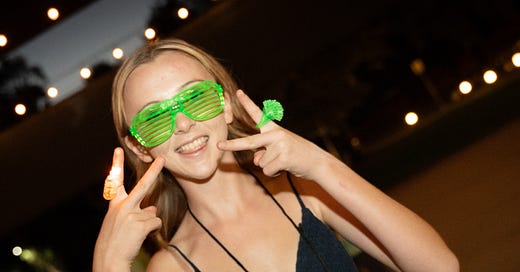



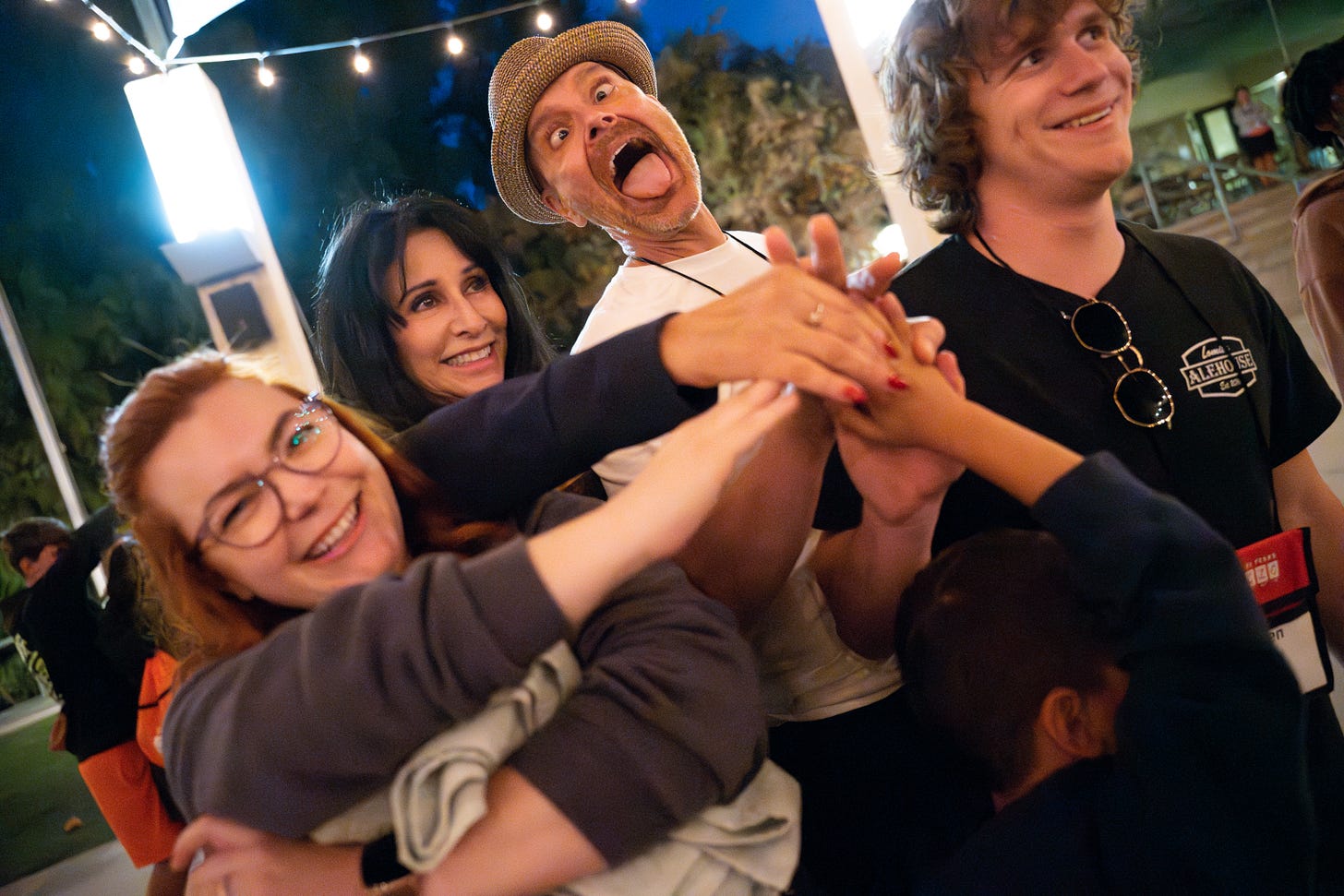
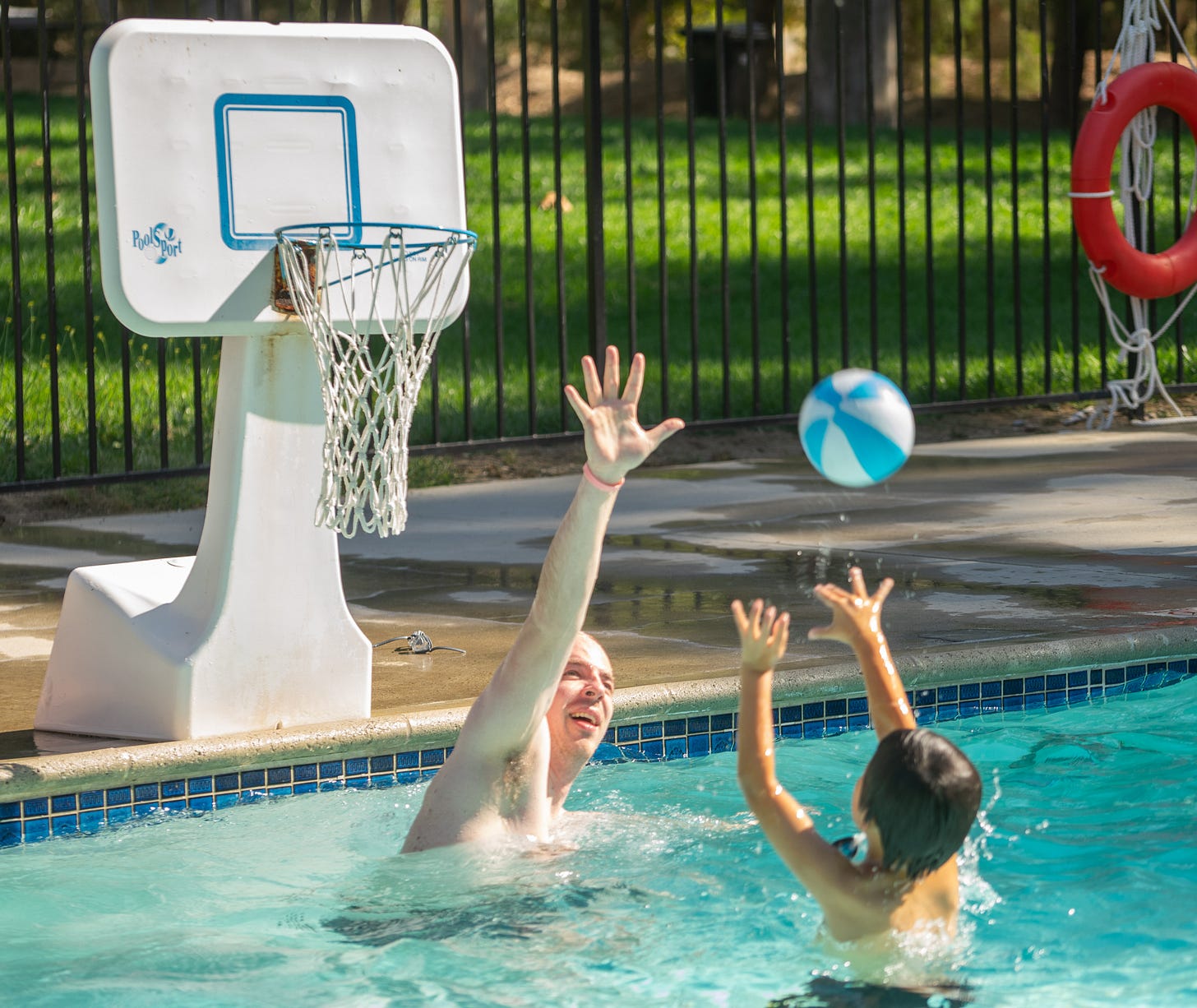
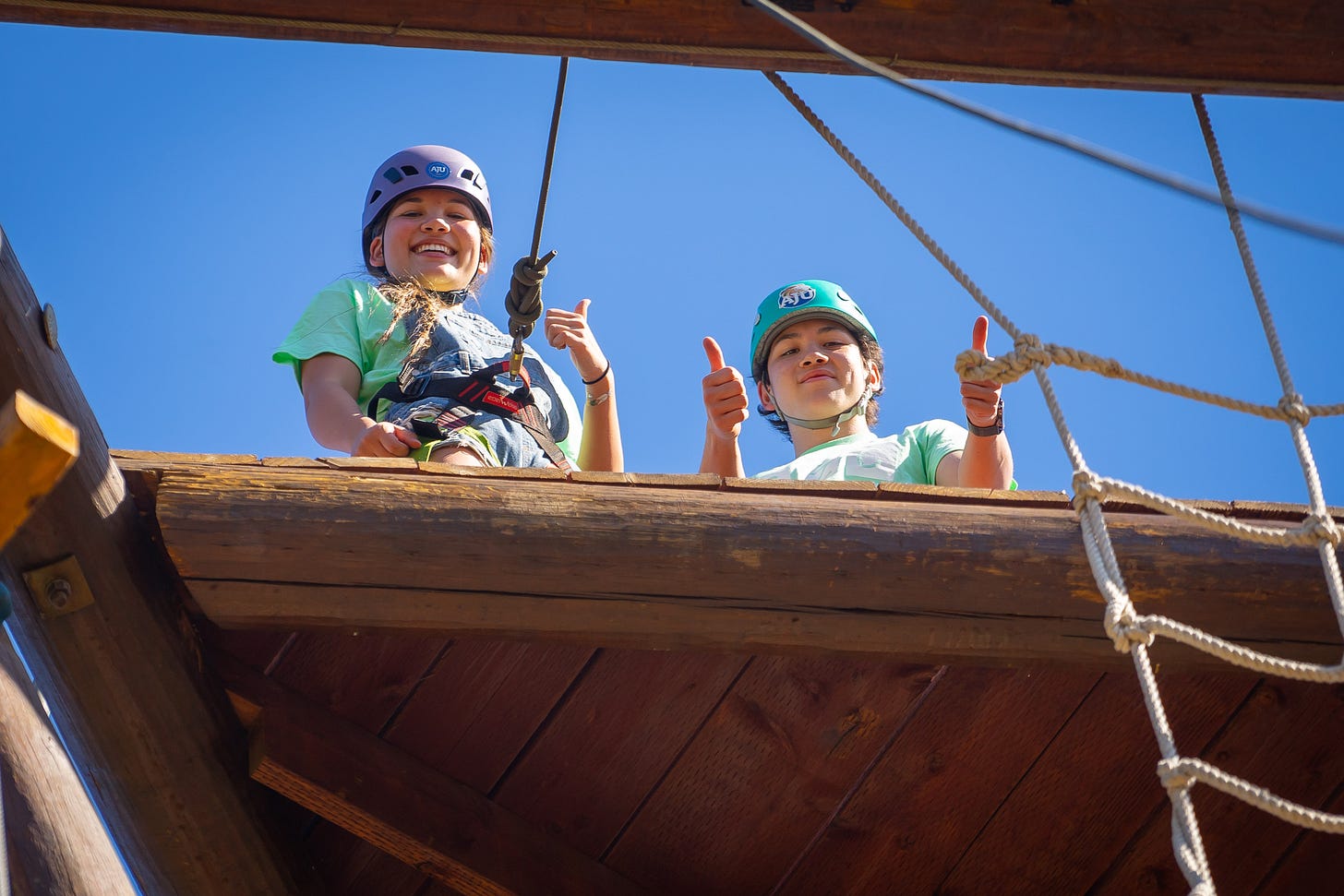
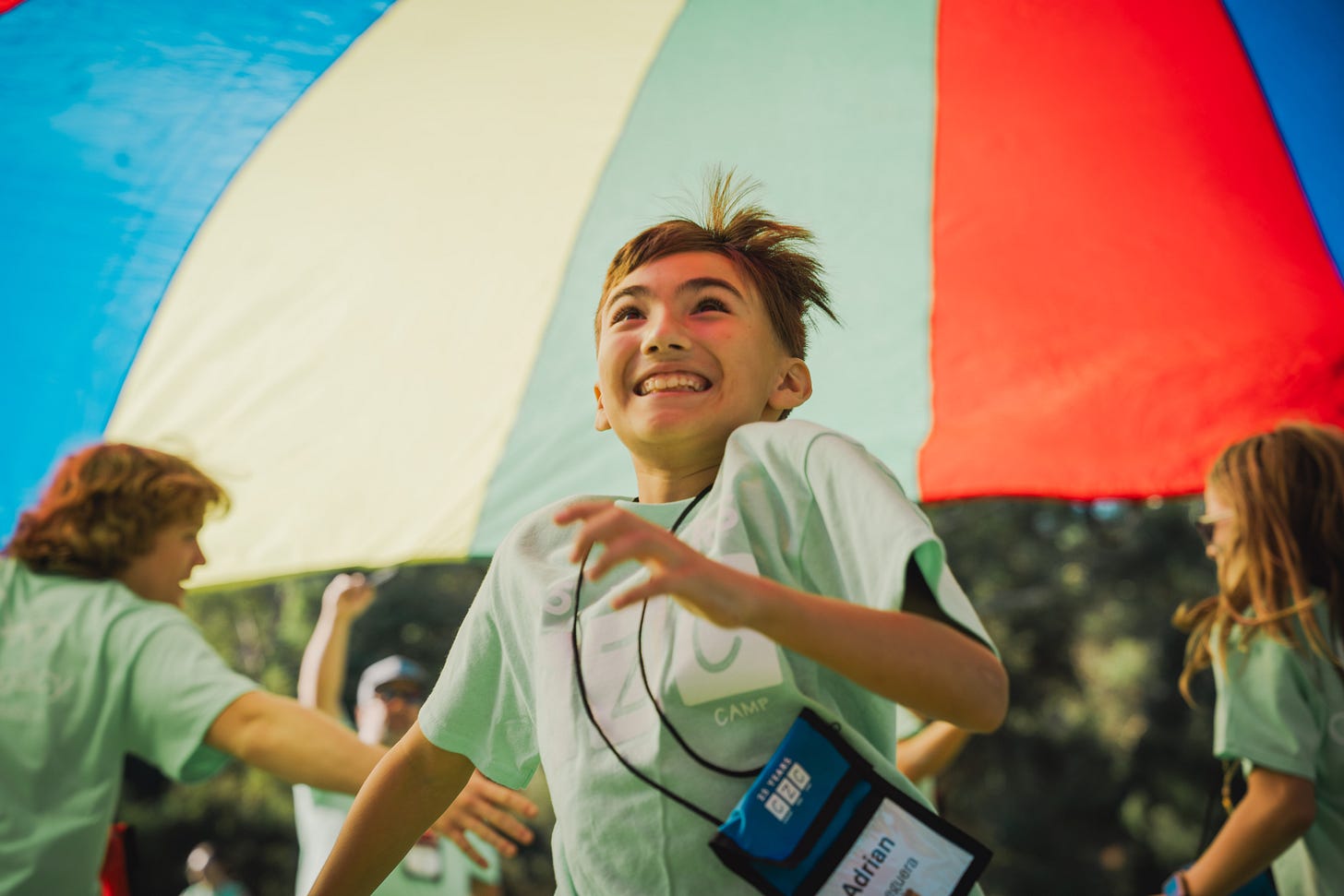
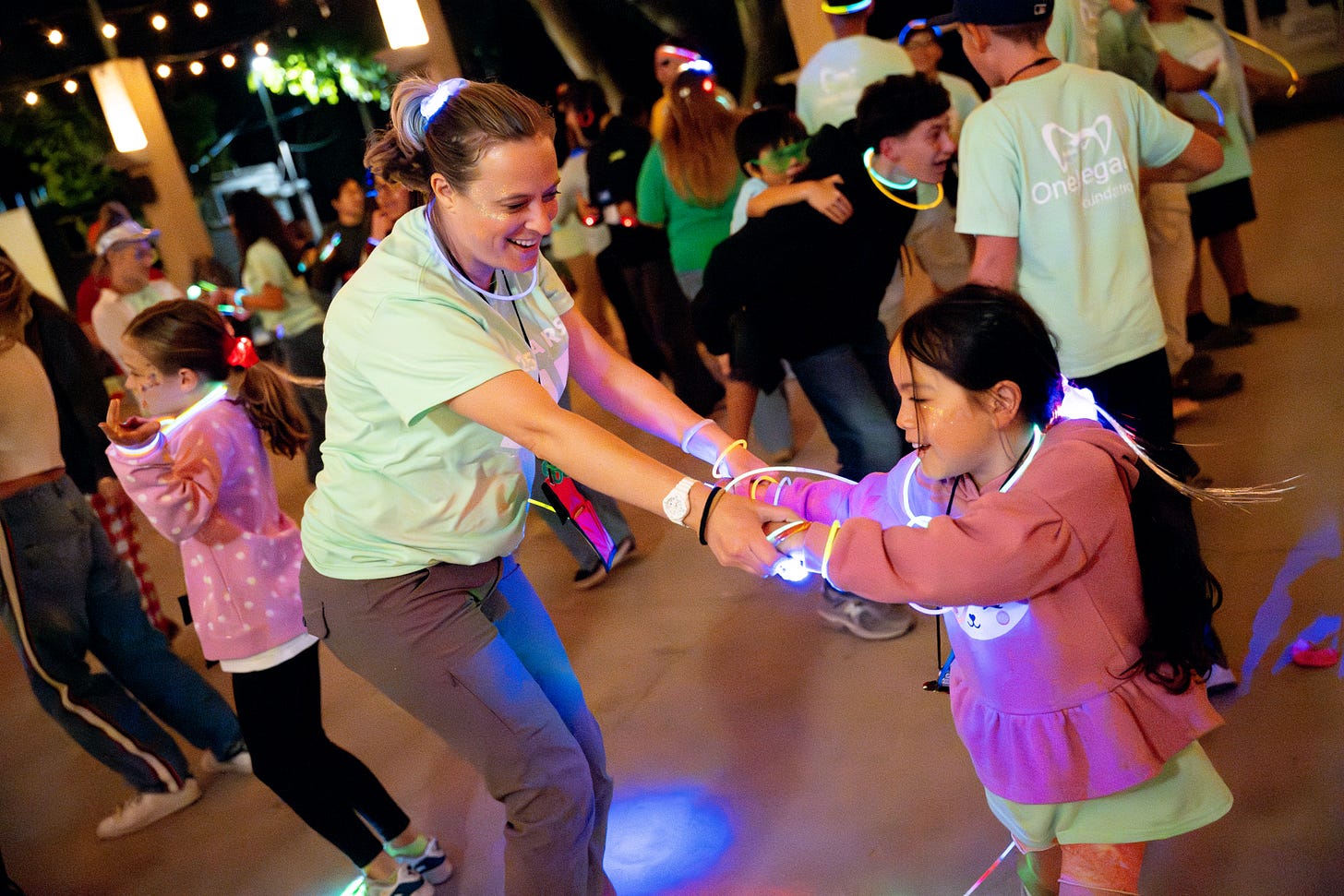
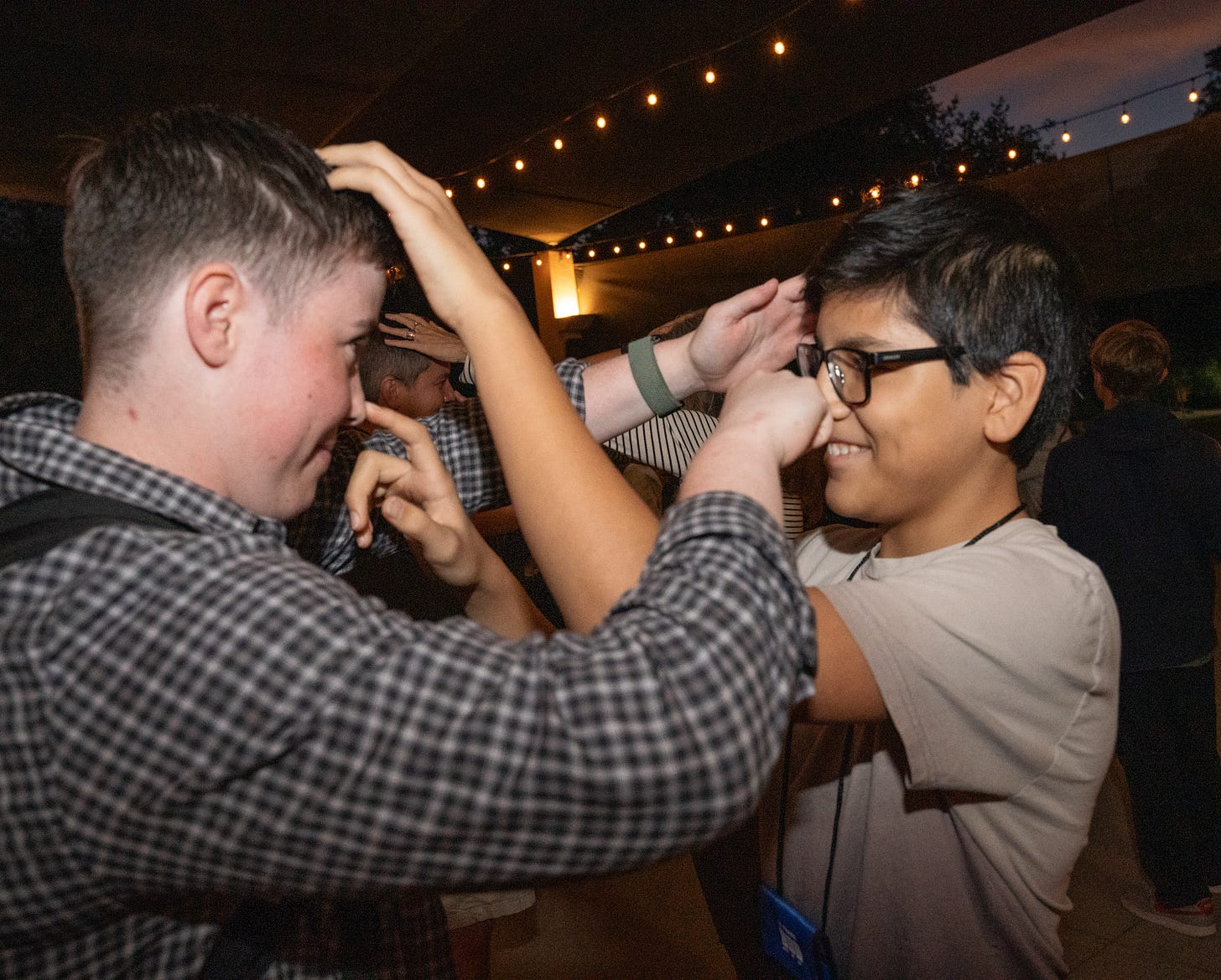
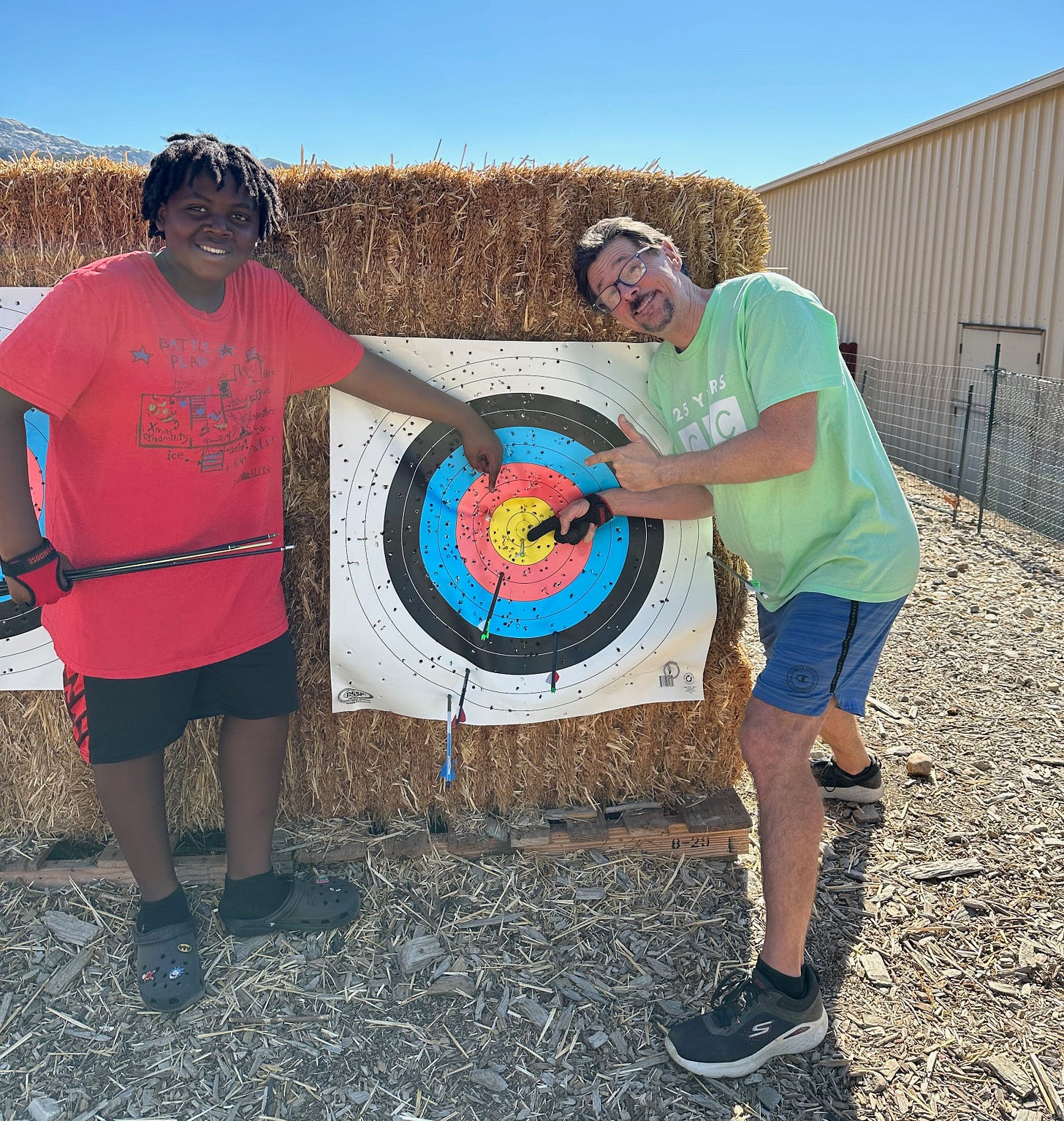
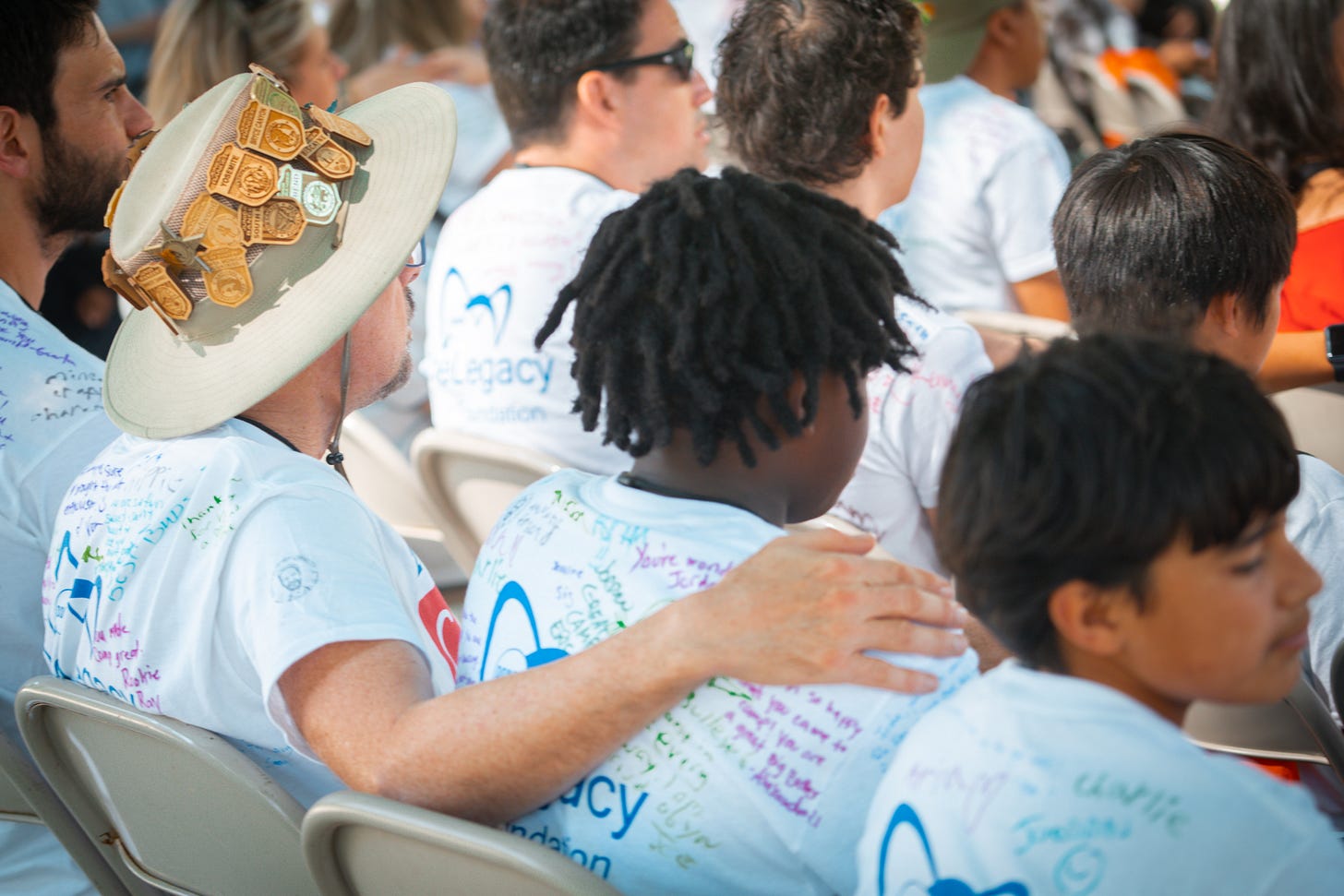
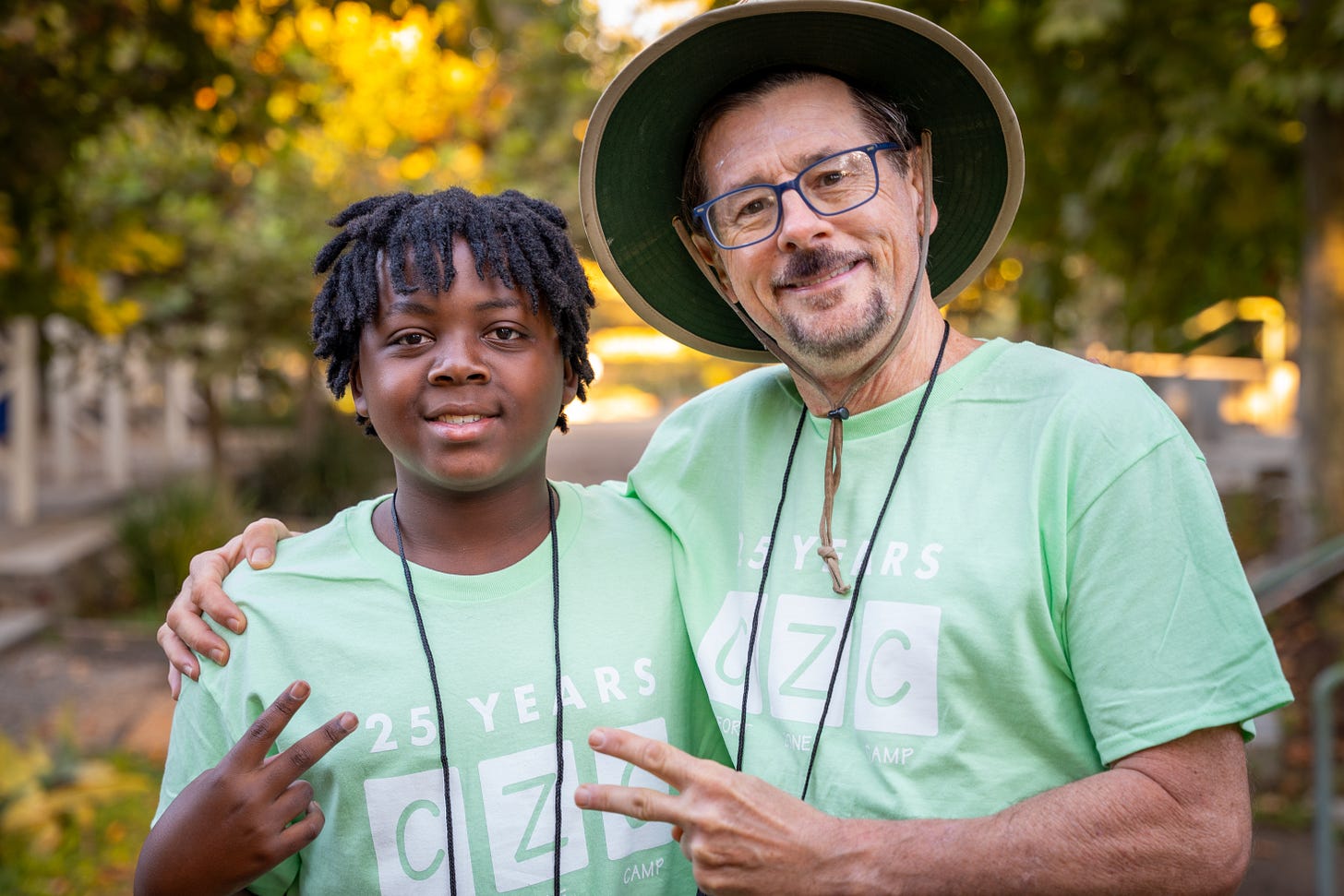
Joe , I really love what you’re doing for the kids! Thank you for making the world a better place!❤️